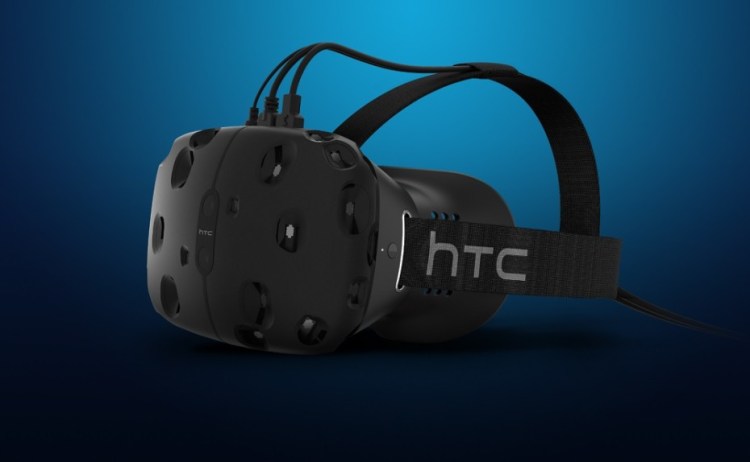Disclosure: The organizers of the SlushPlay conference paid my way to Iceland, where I was the master of ceremonies. Our coverage remains objective.
Virtual reality is so new that even the company releasing a consumer product this year admits it doesn’t really know what it’s doing.
Valve, the operator of the Steam PC digital-distribution platform and founder of Steam VR, is working with smartphone and hardware manufacturer HTC to release the Vive before the holidays. We tried it, and it’s impressive. But it’s also obvious that this is project’s beginning, and now Valve is out talking directly to other developers. And the company’s advice to those studios who want to work in VR is simple but scary: “When it comes to VR, we don’t know anything.”
That’s what Valve writer Chet Faliszek said in a talk he gave at the SlushPlay conference in Iceland last week. Faliszek is best known for writing games like Left 4 Dead and helping to build the worlds of Half-Life and Portal. These days, he’s probing virtual reality in an effort to come up with new ideas, and so far the biggest realization he’s had is how little we know about this new medium.
“None of us know what the hell we are doing,” said Faliszek. “So we want to share what we’re doing and what we learned along the way.”
Valve has experimented with VR for a while now, and it came up with a breakthrough in the last few years that involves a way to track player movement in a room-sized space. That technology serves as the backbone of HTC Vive and Steam VR, and it’s already created some impressive short demos where you have to fix a robot from Portal and where you make eye contact with a whale on the deck of a sunken ship.
But as magical as those experiences were for me, Faliszek thinks that we have a long ways to go.
“We know a little bit,” he said. “But as we keep working and finding out more, we’ve seen how bad some of our ideas are. Don’t get me wrong. There’s a lot of cool stuff being done. But we’re still just scratching at the possibilities, and we haven’t found out what virtual reality really is.”
The Valve writer pointed out that we’ve made movies for more than a century and that TV is around 60 years old.
“Even video games are more than 40 years old,” he said. “VR, where you can actually stay in the [head-mounted display] without getting sick, that’s really only existed for a year. We have a lot more to experience and discover.”
Faliszek argues that we do not know the DNA of virtual reality yet. Developers are at a point where they have to break down preconceived notions before they can start doing truly amazing work.
“We’re at the earliest level of VR where we’re trying to work with stuff that we already know,” he said. “But no one knows what it is. Even when you see it, you only think you know what it is.”
He went so far as to suggest that maybe games where people walk around large open areas might not ever work in VR due to spatial limits. That’s a genre and a type of interaction that might have to give way so that something new and incredible can take its place. At the same time, he didn’t discount the possibility that someone will figure out a way to solve the problem of letting you move vast distances.
Faliszek emphasized that he didn’t have the answer and that it is important that everyone working in VR realize that they can’t just go ask someone else about how to do something. Virtual reality has no manual yet.
“A lot of answers right now come from following what others are doing,” he said. “Don’t accept that. Don’t accept the first thing you see or what someone tells you is the way to go. It’s not going to be easy. It might just be popular and accepted right now. Break the rules and experiment.”
VentureBeat's mission is to be a digital town square for technical decision-makers to gain knowledge about transformative enterprise technology and transact. Learn More

